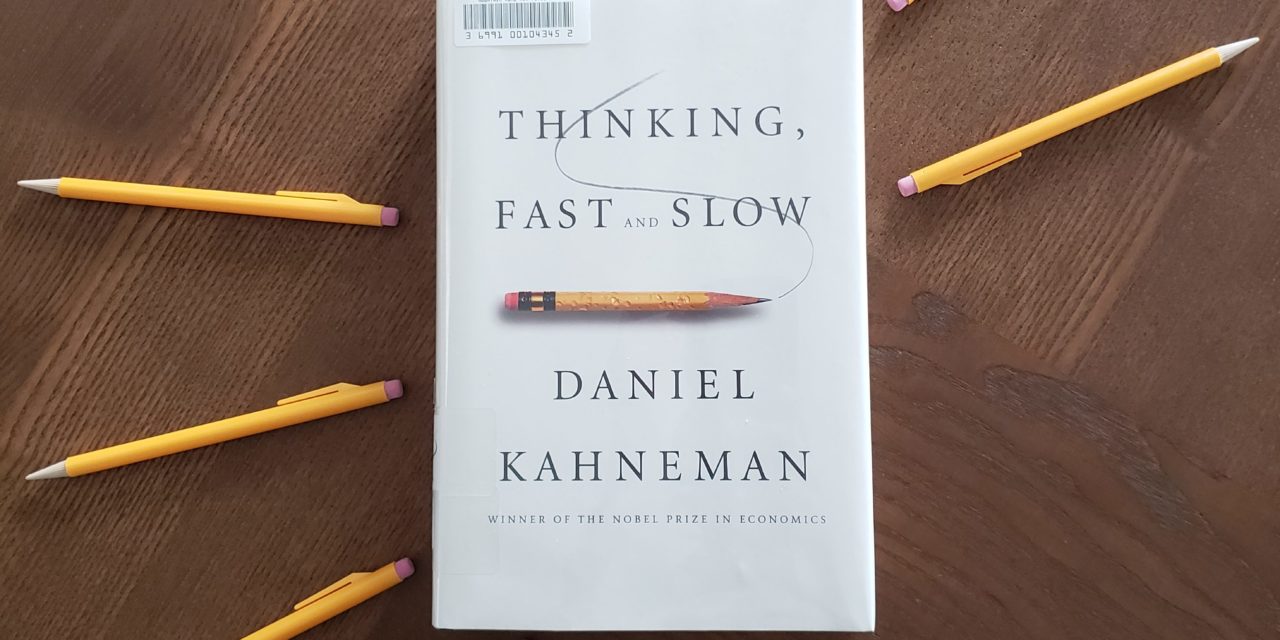Book Review: Thinking, Fast and Slow – Daniel Kahneman
18 Nov 2019

It’s safe to say that human beings are rational creatures. We make decisions based on careful consideration of myriad factors that play a role in how a particular circumstance will turn out. We never let our emotions and experiences affect the choices we make or the paths we take that are best for us. Or do we?
Nobel Prize winner Daniel Kahneman’s Thinking Fast and Slow reveals the fallacies and biases that shape how we live our lives and in doing so, complicates our understanding of ourselves as supremely rational beings. His engaging book looks at what he calls System 1 and System 2. System 1 is effectively our fight or flight response to stimuli, our emotional reactions which can, at times, be illogical and can, at others, save our lives.
He uses the example of a caveman learning to avoid lions after his child is killed by one. Out with another child one day, a bird flies over and the second child drops dead. One could imagine that, just as the lion experience has taught the father to keep his child away from lions, the bird experience teaches him to stay away from birds flying overhead. This is obviously irrational – there’s a difference between correlation and causation – and yet we draw these sorts of confused lessons from our experiences every day. We misuse System 1 and System 2, our rational thought processes, oftentimes using one when the other should be called upon.
Kahneman doesn’t argue we should ignore or overcome System 1; indeed, humans wouldn’t be where we are if we didn’t learn to fear dangerous stimuli quick smart. Rather, it’s about using the right system in any given situation. This isn’t always easy, however, and Kahneman examines the cognitive flaws that see us proceed through our lives making decisions based on biases and mistaken assumptions like, for example, anchoring, loss aversion, the sunk cost fallacy, and the science of availability.
In Thinking Fast and Slow, Kahneman proposes a slew of engaging examples to bring the psychology of our decision-making to life and in unpacking how we think, he provides a roadmap for how to better live our lives and interact with others both in our personal and our professional lives.

